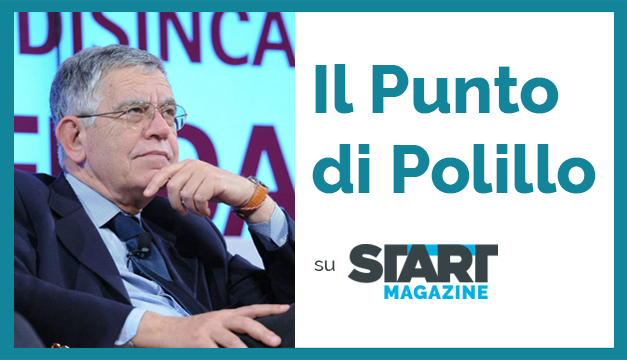Is the Italian intelligentsia ready to fight against the Rutte in Europe?

Gianfranco Polillo's comment on the sidelines of the tensions between Rutte and Draghi
If a large part of the Italian intelligentsia were not sick with xenophilia, perhaps the defense of the great national interests would have been more solid. There would have been time and a way to respond to those "frugal" who, from the top of their small economies, owe much of their wealth to an export flow, which is directed above all towards the large Union market. In 2019, countries such as Holland or Denmark, which boast a current account surplus of their balance of payments equal to 9.9 and 8.9 per cent of GDP respectively, directed 68 to other European partners. , 7 and 53.1 percent of their exports.
Apart from the fact that the European rules, the same ones that have a degree of cogency equal to the Fiscal Compact, provide for a maximum limit of the surplus with foreign countries equal to 6% of GDP, they should be reminded that the economy has a circular trend. . The relative advantage they enjoy is the result of a set of economic policies, implemented by other countries, the result of which is that which allows the wings of the EU to achieve levels of well-being that would otherwise be difficult to achieve. So be careful not to go up to the chair to beat up alleged squanderers.
It was not nice to see Mark Rutte, the Dutch premier, once again top the class. Respond dryly to Mario Draghi, who had proposed to make structural the Sure , the program to support employment in Europe, with a budget of 100 billion. Nein: There will be, at least from Holland, no concession. Once those funds have been used up, such as those of the Recovery Fund , you will have to go back to the old normalcy. An appetizer of what may happen at the next summit in June, when the knots of "what to do?" will come to a head.
The Dutch premier preferred to anticipate, to re-propose an old prejudice against Italy, even at the cost of ignoring how much the international reality and that of Italy itself had, in the meantime, changed. An evident error of perspective which, however, must be analyzed in some way and, as far as possible, explained. If the tenant of Palazzo Chigi was still Giuseppe Conte we would have had no doubts. But now that seat is occupied by Mario Draghi. And this makes the difference.
Conte had been forced to seek the legitimacy in Europe that he did not have in Italy. The second is the one who with his "unconventional policies" has saved the euro. Is there anyone who can doubt his Europeanism and use this card to defend pre-established positions? In truth, in his more than fortunate "rise", the people's advocate had done nothing but follow a previous bad habit. That long tradition of Italian pro-European politics which, since the early 1990s, had been strongly influenced by national history.
Starting from those years, in fact, the problem of a re-legitimization of the Italian left had arisen, following the fall of the Berlin Wall. Previously, there had been no shortage of positions aimed at loosening too many close ties with Moscow, but these were too timid attempts. So much so that 1989 caught the party in the middle of the ford, forcing it to seek new references of an international character. And it was then that Europe became a new North Star, although it had been hard fought in the hardest years of the Cold War. The memory of the Ventotene Manifesto came to the aid of a PCI, forced to change its name. Written by a former communist, such as Altieri Spinelli, then disbarred on charges of being a Trotskyite, in collaboration with Eugenio Colorni and Ernesto Rossi. More a product of shareholder culture than Marxist culture.
At that time Carlo Azeglio Ciampi was Governor of the Bank of Italy. A shareholder himself, under his management, the bank had been very exposed in theorising the need for an external constraint. The pressure of a force, opposed to the political class, that forced him to make those reforms that, otherwise, no one would have had the courage to carry out. Thus the conditions for that agreement were created that would mark the years to come. With Ciampi gradually assuming increasingly important positions: from simple minister to Prime Minister and, finally, President of the Republic.
Obviously, nothing to complain, given the high qualities of the character. But what was the effect of that complex affair in Europe? Probably the consolidation of an idea that Italy was, in some way, commissioned. Because this had required his establishment to be recognized. By this expression, we mean the government left, since the center-right, led by Silvio Berlusconi, not only did not attribute any credibility. But it was publicly opposed, both through a complacent press and through blatant demonstrations. Suffice it to recall the curtain between Merkel and Sarkozy in 2011.
With Draghi, for the first time, this house of cards is destined to collapse. Italy ceases to be the special guard and can become the protagonist. Which alarms an old European establishment, to the point of explaining Mark Rutte's poor diplomacy. Will the simple presence of a large commis d'état on the bridge of Palazzo Chigi be enough to consolidate the turning point? We doubt it. It is time for the Italian intelligentsia to make a move. Come out of your ideological fumistries and finally deal with the great national problems.
This is a machine translation from Italian language of a post published on Start Magazine at the URL https://www.startmag.it/economia/intellighenzia-italiana-pronta-a-battagliare-contro-i-rutte-in-europa/ on Mon, 10 May 2021 09:10:26 +0000.
